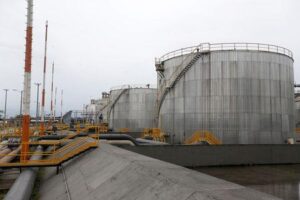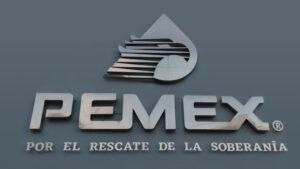
(Argus, 11.May.2020) — Argentina will restore artificially high domestic crude prices in an effort to jumpstart its stalled shale play following the March oil price crash and pandemic-driven demand collapse.
The government, which is hurdling toward another default on its sovereign debt, plans to issue a decree that sets the minimum price, known colloquially as the “criollo barrel”, ending weeks of debate that pitted independent producers and oil-producing provinces against refiners.
Barring any last-minute changes, the decree would set $45/bl as a minimum price for 34°API Medanito light sweet crude, establishing a benchmark for the country’s other crude grades such as heavy sweet Escalante.
The measure, which would not be retroactive and would remain in place until the end of the year, would be subject to quarterly revisions as long as the Brent price does not exceed $45/bl for 10 straight days.
The decree would also slash export taxes for crude to zero, down from 8pc, as long as the international crude price is at or below $45/bl, and would mandate that refiners purchase all crude feedstock from domestic producers.
The tax revenue-starved provinces led by shale-rich Neuquen have been among the biggest advocates for propping up the prices, bringing back a market-defying policy that prevailed when current president Alberto Fernandez had served as cabinet chief under former president Nestor Kirchner and his successor, now-vice president Cristina Fernandez, with whom he is not related.
The oil industry crisis in Argentina is most evident in the country’s vaunted Vaca Muerta shale formation that blankets Neuquen. In April, hydraulic fracturing had completely dried up in Vaca Muerta, compared to 438 shale and tight fractures in March, according to data provided by Luciano Fucello, country manager of US services firm NCS Multistage.
The minimum price most directly benefits independent oil companies that sell their production to refiners.
Refiners and traders, including Raizen, a joint venture between Shell and Brazilian energy and logistics conglomerate Cosan, and Trafigura, opposed the move.
Trafigura had already said that a minimum price would prompt an even sharper cut in throughput at its 30,500 b/d refinery in the petrochemical hub of Bahia Blanca, Buenos Aires province.
The refinery run cuts, which reflect a sharp drop in fuel demand because of Argentina’s ongoing national lockdown, suggest that few transactions are likely to be executed at the new domestic crude price, at least in the near term.
Raizen, for example, halted crude processing at its 110,000 b/d Buenos Aires refinery last month after it ran out of storage space. Argentina’s state-controlled YPF, which holds more than half of Argentina’s close to 600,000 b/d refining capacity, has stopped buying third-party crude and has suspended operations at its 25,000 b/d Plaza Huincul refinery. The company’s 189,000 b/d La Plata and 105,000 b/d Lujan de Cuyo refineries are operating at below 50pc of installed capacity.
Default looming
The oil price talks had been taking place against the backdrop of round-the-clock efforts by the Fernandez administration to avoid a sovereign debt default next week, potentially its third since 2001. Argentina’s watershed $100bn default of 2001 sparked years of political and economic volatility which the country struggled to overcome.
Fernandez is hoping bondholders will accept an offer to restructure $66bn in bonds that includes a 5.4pc reduction of principle, a 62pc cut in coupon payments and a three-year grace period, arguing the country will need time to recover from the effects of the pandemic.
The deadline to accept the offer was 8 May, but it has been extended to 22 May. If there is no agreement on that date and Argentina does not make a coupon payment of some $500mn, the country will go into default, making it more difficult and expensive for companies in Argentina to obtain financing from abroad.
— By Daniel Politi
***

